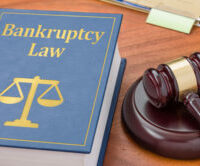Filing for Bankruptcy and Keeping Your Home

Filing for bankruptcy is a serious decision, not to be taken lightly. One common question we receive from those considering whether bankruptcy is a good solution for them and their family, is whether or not they can expect to be able to stay in their home if they file for bankruptcy. The answer to this question depends on a number of factors, including your chosen form of bankruptcy filing and the amount of equity you’ve built in your home. Speaking with an experienced New York bankruptcy attorney can help you to structure your bankruptcy in such a way that you’re able to keep the property that is most important to you, including your home.
For Chapter 13 bankruptcy filers
Many bankruptcy petitioners find that it is more likely they will be able to prevent their home from being sold by the bankruptcy trustee by filing under Chapter 13, or personal reorganization bankruptcy. If you are currently behind on your mortgage payments, filing under Chapter 13 will provide an opportunity for you to make up the arrears before being subject to foreclosure. Unlike a Chapter 7 filing, your personal property is not sold to satisfy creditors; instead, the bankruptcy trustee issues you a three to five-year payment plan which consolidates your debts and serves to satisfy your creditors. In order to retain your property, you may wish to request a longer-term payment plan that allows you to make smaller payments each month, thus increasing the chances that you can comply with the plan and prevent foreclosure.
For Chapter 7 bankruptcy filers
Whether you’re able to keep your home when filing for bankruptcy under Chapter 7 will depend on whether you’re current on your mortgage payments and able to remain so, and how much equity you’ve built up in your home. In a Chapter 7 bankruptcy, your non-exempt assets can be liquidated or sold, with the proceeds going to your creditors, and your debts will be forgiven. Petitioners will receive certain exemptions in different amounts for different categories of property, including what’s known as a homestead exemption. The homestead exemption will allow you to prevent the sale of your residence to satisfy creditors if you have accrued less equity in your home than the amount of the exemption. In New York, Chapter 7 petitioners can choose between the federal exemption amounts and the state-set exemption amounts, and under state law, the amount of the exemption will vary based on the county in which the home is located, so between these options the exemption ranges from $23,675 to $165,550. Additionally, married couples filing for bankruptcy can exempt double the amount of the applicable homestead exemption.
If you need assistance determining if bankruptcy is the right choice for you, or whether to file for Chapter 7 or Chapter 13, seek out the experienced and compassionate Hudson Valley bankruptcy attorneys at Rusk, Wadlin, Heppner & Martuscello for a consultation, in Kingston at 845-331-4100, and in Marlboro at 845-236-4411.

